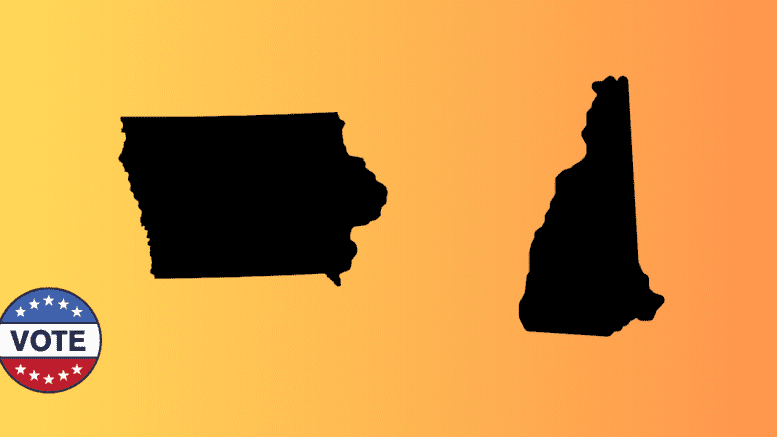By John A. Tures, Professor of Political Science, LaGrange College
Every four years, we go through the charade of the political party nomination process, where the same fraction of the American population consistently plays an unfairly outsized role in picking the party leader. Unless both parties adopt a National Primary Day, Georgians will continue to have little to no say over who represents the Republican and Democratic Party.
Many Americans think that for some reason the Iowa Caucus has to be the first political contest of the nomination process, and that New Hampshire must be the first primary in the country. But a check of the Constitution, Acts of Congress, and Supreme Court cases will reveal that this is clearly not the case.
In more recent years, South Carolina and Nevada were added to the primary calendar, a weak attempt to make a few Southerners and some Westerners believe the parties care what those regions think. But this provides a mere fig leaf, failing to cover for an unjust system.
Iowa has over 3 million residents, while New Hampshire makes up 1.4 million. South Carolina boasts 5.3 million residents while 3.18 million count Nevada as home. Those four states combined make up 13.2 million, or only 3.86 percent of the 339.996 million Americans.
The 10.913 million Georgians nearly have as many citizens as the other four “early primary” states. And yet they are scheduled roughly 25th in line to cast their vote for the nomination. Newt Gingrich’s 2012 victory over Mitt Romney in the Peach State and Bill Clinton’s early win in Georgia in 1992 represent incredibly rare cases where Georgians cast meaningful votes.
And a Trump ally introduced a resolution at the Republican National Committee to declare the former president the nominee, not even letting the other 96%+ have a vote. Trump later claimed he opposed this resolution, but didn’t he say his MAGA team will sanction any Haley donor?
The only way for Georgians to cast a meaningful vote more than once every 20 years is to unite with other ignored states to form a National Primary Day, where all residents of all states cast their ballots for who should lead one of the two leading parties.
Defenders of the plan point out that Trump only has 32 delegates, having won Iowa and New Hampshire. And he needs more than 1,200 to win the nomination. But we’ve had more than a dozen candidates drop out before any of us got a chance to evaluate them, much less vote for them. We could choose Tim Scott, Mike Pence, Chris Christie, or Doug Burgum. More than one state can evaluate Ron DeSantis, Vivek Ramaswamy, or Asa Hutchison.
Opponents of the National Primary Day claim that small states could be ignored. Well, under the current system, large states are already being ignored. If we don’t make it by state, a South Dakota’s vote could count as much as an Alabaman’s vote.
Since traditionalists will insist on states voting, and some sort of drawn-out nomination balloting system, then the only fair reform would be to vary which state gets, and make it region-based. So in 2028, Missouri would vote first for the Midwest in 2028 while Michigan goes first in 2032. In the Northeast, Connecticut gets to pick instead of New Hampshire in 2028, and New York gets a turn in 2032. For Southerners, Georgia would finally get to vote early in 2028, while North Carolina votes in 2032, taking South Carolina’s spot. And why not have Utah go early in 2028, followed by Arizona in 2032. New states would represent the regions in 2036 and 2040. The four states can wait until 2064 to go first again, just to keep it fair.
Almost any plan would give Georgia more of a say than they have today. Instead of defending outdated traditions, both parties should make all votes in the primary season count more than they do in 2024. The Peach State should align with the other 96% to make this happen.
John A. Tures is a professor of political science at LaGrange College in LaGrange, Georgia. His views are his own. He can be reached at jtures@lagrange.edu. His Twitter account is JohnTures2.





